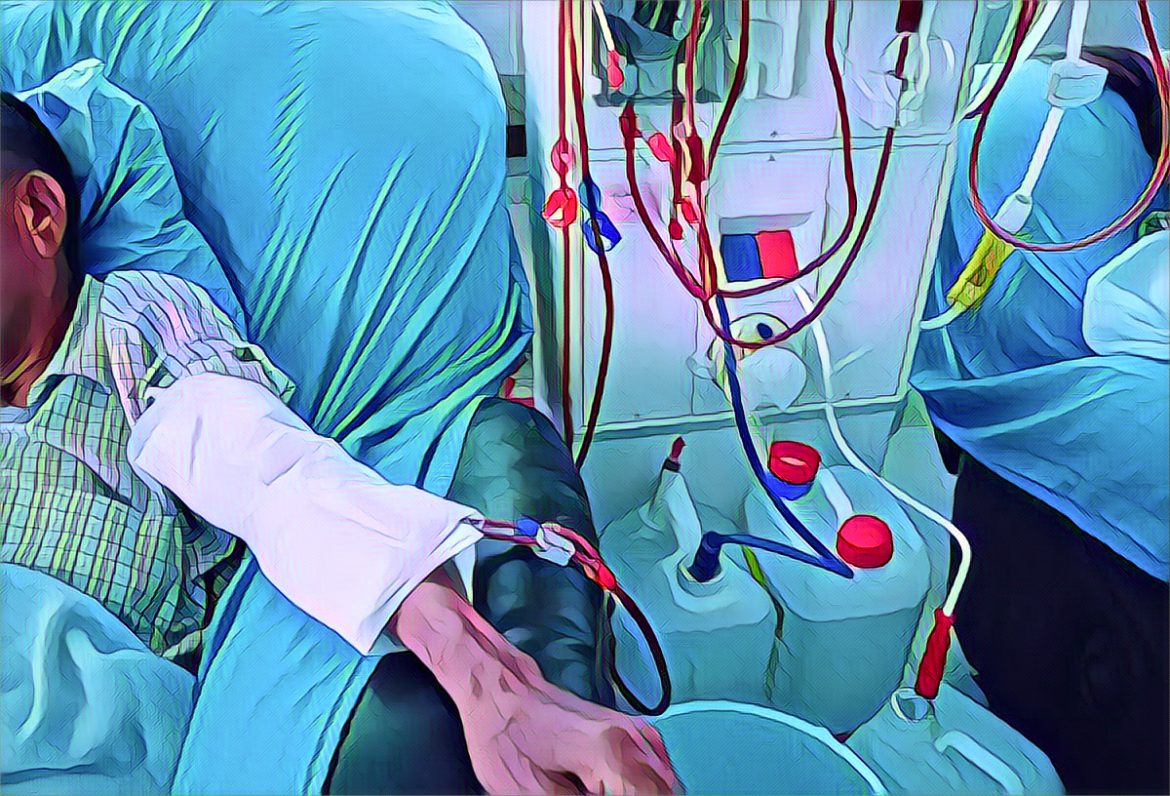For 24 years, 47-year-old Vasco Mukunangana has struggled with the immense challenge of accessing treatment for his kidney ailment in Zimbabwe. The scarcity of kidney treatment services at government health centers, combined with the prohibitive cost of private clinics, has left many, like Mukunangana, in a dire situation.
While there have been improvements in the availability of dialysis services for kidney patients, most units are concentrated in Harare, the capital city. This centralization offers little solace to patients in remote areas who must travel long distances to access vital dialysis treatment.
Dialysis, a process critical for those with kidney failure, involves cleaning the blood through a machine when the kidneys fail. This essential treatment, however, comes in two forms: – haemodialysis and peritoneal dialysis, both of which can be physically taxing and lead to complications like itchy skin, muscle cramps, and even infections.
According to a report by Newsday, Mukunangana voices a common plea among patients: the need for more government dialysis centers and machines in rural areas. This necessity is especially crucial for patients without medical aid, who face charges ranging from US$100 to US$200 per session at private centers.
In 2018, the government set dialysis fees at US$40 in public institutions to reduce treatment costs. However, even at these facilities, shortages of dialysis consumables force patients to either import them at high costs or miss vital sessions. This situation is perilous, as skipping dialysis can be life-threatening, particularly for older patients and those with additional health issues.
Compounding the issue, government hospitals lack machines suitable for patients with certain infections, like HIV. Additionally, medical aid schemes are increasingly unable to cover the full cost of dialysis, especially for those earning local currency.
Nephrologist Rumbidzai Dahwa highlights another critical issue: patients often seek treatment too late, when kidney disease has significantly advanced, making it harder to afford necessary care.
The limited number of dialysis centers, such as Parirenyatwa Group of Hospitals, B Braun, and Red Cross, are overwhelmed, with some attending to nearly 50 patients daily. Yet, most of these facilities have only a handful of machines, insufficient to meet the growing demand.
The Health and Child Care Ministry in Zimbabwe reports an alarming statistic: 1,000 new cases of kidney failure annually, with only 700 able to access dialysis. The remaining 300 are left without the lifesaving service due to financial constraints. Kidney disease, often a silent killer, is exacerbated by diabetes and hypertension, which are prevalent in the ageing population of Zimbabwe.
Chronic kidney failure cases are on the rise in the country, driven by hypertension, diabetes, and an aging population. This surge in cases demands a significant increase in dialysis therapy availability in both public and commercial facilities nationwide.
The situation in Zimbabwe reflects a larger problem in healthcare accessibility and affordability. The dire state of kidney care highlights the need for comprehensive healthcare reform, focusing on the provision of essential services to all citizens, regardless of their financial status.
As Mukunangana and thousands like him continue to battle their conditions, the call for action becomes more urgent. The government’s efforts to cap dialysis fees and provide services in public hospitals are steps in the right direction, but far more needs to be done. Expanding dialysis services, particularly in rural areas, and ensuring that all patients, regardless of their HIV status or financial capability, have access to treatment are critical steps towards addressing this healthcare crisis.


